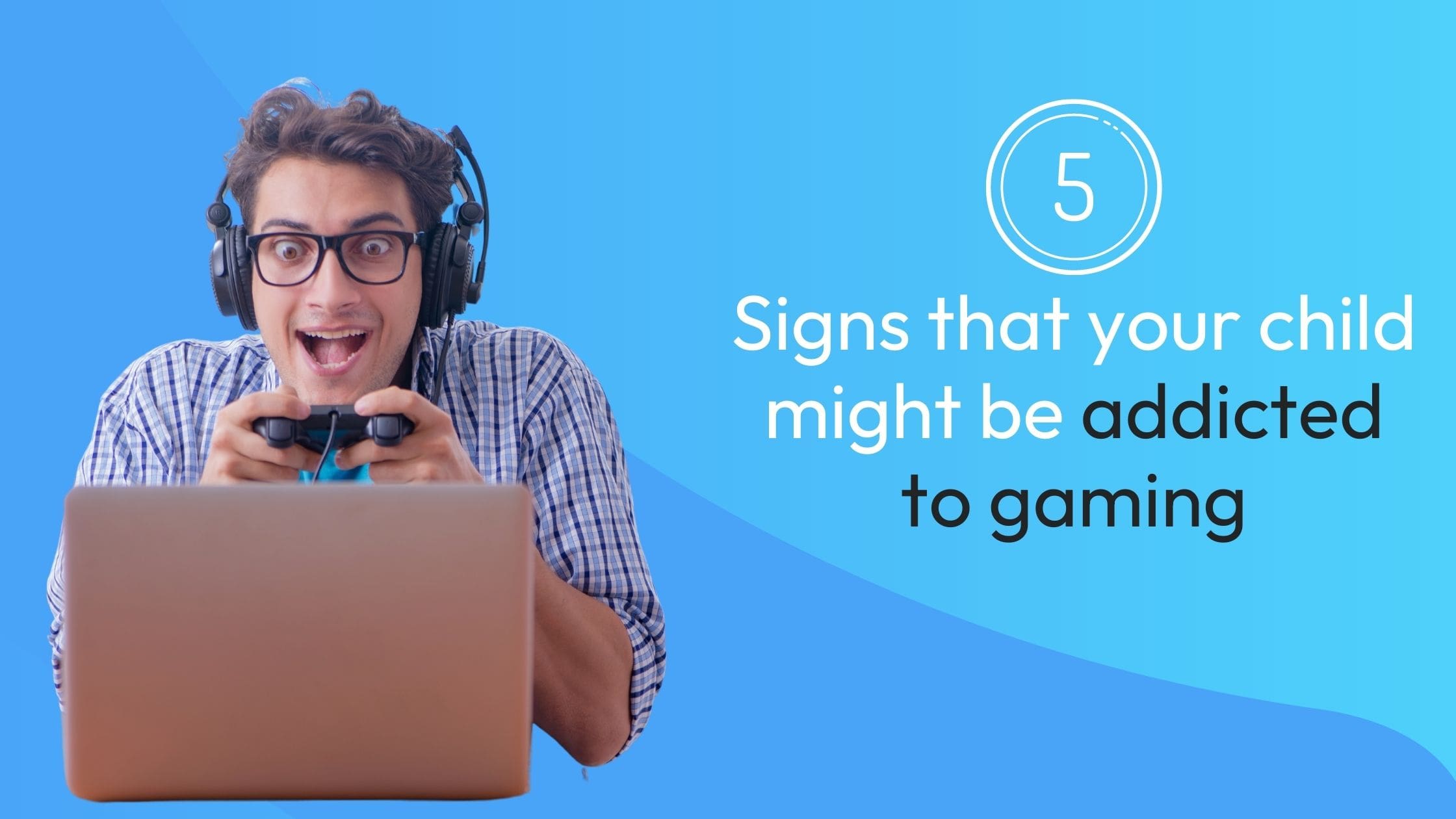Is my child a gaming addict and how do I know?
When does your child go from an avid gamer to a gaming addict? These are signs to watch out for and what to do if you suspect your child is addicted to video games.
“B, you’re becoming a video game addict,” is something I, mostly jokingly, tell my middle daughter on a semi-regular basis. She and my husband alike can spend hours staring at a screen, trying to win in Fortnite: Battle Royale or crafting a new residence in Roblox. After I make her shut down her screens and be done with electronics for the day, she will animatedly tell me about her online adventures with the same excitement I tell my husband about the new shoes I ordered online or the great deal I got on new bedsheets (ah, domestic bliss at its finest).

Gaming Addiction by the numbers
But gaming addiction isn’t a joke. It is a very real affliction that affects kids and adults alike, and it is something that we, as a society, are still actively learning about. Let’s start off by examining some (quasi-alarming) statistics about video gaming:
- There are 3.24 billion gamers in the world.
- 64% of the U.S. population can be considered gamers.
- The average male gamer is 33 years old, while the average female gamer is 37.
- Males between 18 and 24 are most at-risk for addiction.
- 94% of gaming addicts are male.
- 69% of gaming addicts are Caucasian.
- 3-4% of gamers in total are considered addicted. Boys are much more likely to become gaming addicts than girls are.
- As many of 8.5% of youth gamers can be considered addicted.
Signs your child is addicted to gaming
While the thought of a child who is addicted to gaming might be scary, there is no need to get alarmed yet. Kids like to play video games. And, as we are still at the tail end of a pandemic. we, as a society, have seen unprecedented times, where many kids, without school and sports to keep them occupied, turned to video games for entertainment when there, quite literally, wasn’t anything else to do. Video games can be educational and fun. They can help us bond with others. They can teach us great life skills. There are lots of good things that can come from playing video games.
But, there are a few things you can look out for that might indicate your child’s gaming habit is becoming a problem. Signs of a gaming addiction include:
- Thinking about gaming constantly
- Loss of interest in other things, especially things your child used to enjoy
- Lying about how much time they are spending gaming
- Declining performance in schoolwork
- Feeling upset or irritable when they can’t play their video games
My child might be a gaming addict. Now what?
If you suspect your child (or spouse, or loved one) has a gaming addiction, you should start first by talking to your child’s doctor or paediatrician. Video gaming addiction is still a fairly new thing, and researchers are still trying to determine the best course for treatment. However, if your child’s interest in video gaming is increasing and you’re worried it could become an addiction, there are several steps you can take to help your child separate from screen time.
- Set screen time or video game time limits and stick to them. If you are able to set parental controls on your devices to turn off after a predetermined amount of time, you should do that.
- Don’t let your child have a video game system or smartphone in their bedroom. This could increase the time that they spend gaming and lead to them lying about it.
- Enrol your child in sports or other extracurricular activities that they enjoy. If they have something to look forward to after school, they won’t automatically come home and login to a video game.
If you are worried that your child or loved one needs help for a video game addiction, Addictions.com can be a great jumping off point for resources that can help you steer your loved one away from video games.